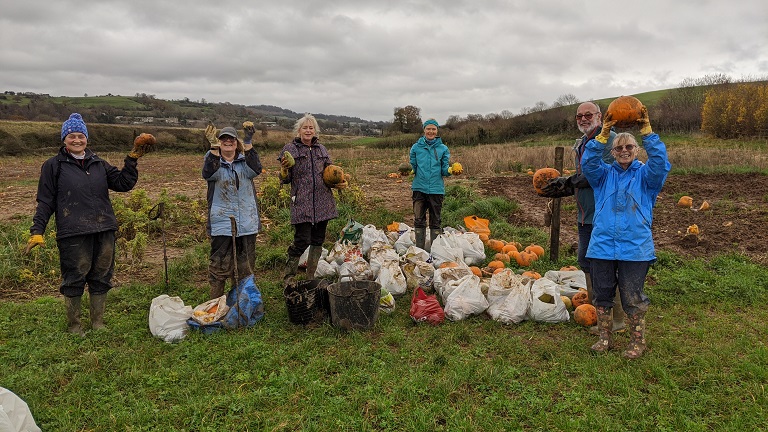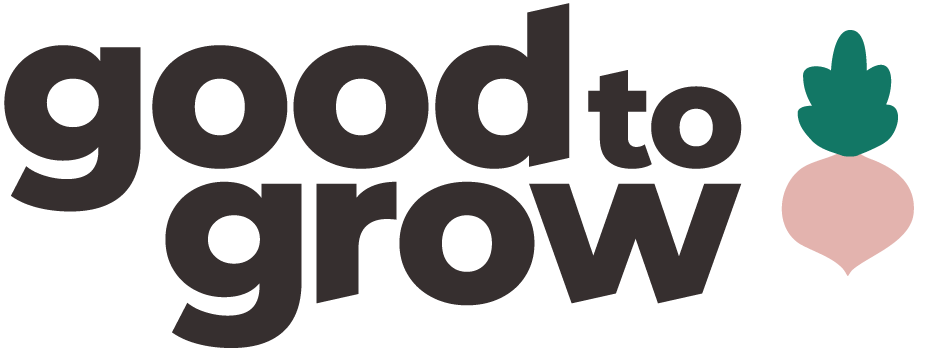Innovative project connects allotment surplus with food projects in Bath and North East Somerset
CropDrop is coordinating the redistribution of surplus fruit and vegetables from bountiful allotments and growers in Bath and North East Somerset. Volunteer drivers transport the produce to charity projects that provide food, alleviating food poverty, strengthening communities and minimising food miles.

The "CropDrop" project originated from a discussion between Milly Carmichael, Bath and North East Somerset (B&NES) Council Food Poverty Officer, and Dr Lyn Barham, Food Convenor of Transition Bath on July 20th 2020.
The team now consists of five volunteers, supported by Milly Carmichael. On 9th August 2020 three allotments in Bath began donating to four Bath food projects. By October six more allotment site growers had been linked with fourteen further food charity projects across B&NES - in Keynsham, Peasedown St John, Radstock, Paulton, Temple Cloud and Midsomer Norton. Woolley Grange Hotel Market Garden also began sharing their occasional abundant produce.
A typical CropDrop operation is as follows:
- Allotment holders deposit their donations into an arranged collection box on-site, protected from the weather and potential hungry animals (usually in a box, behind a shed in the shade). This is often over the weekend.
- On a pre-arranged day, a volunteer driver picks up the fruit and vegetables and transports them to a charity project. This is commonly on a Monday or a Thursday.
- Food charity projects distribute to their clients the afternoon after a drop off or the next day
There was a positive response to the ‘shout out’ for volunteer drivers over social media, the B&NES 3rd Sector Group Compassionate Communities Hub, radio and email callouts to community networks. Over 25 volunteer drivers came forward; 9 of them were deployed in the first 3 months. In some cases, the volunteer drivers have come forward from the allotment growers or the charity projects themselves.
In addition to regular allotment drops the team have also been able to respond to individual large one-off distributions, including 200 yards of kale shared with nine projects on one day, harvesting from two laden apple trees shared with ten projects and 600 squash and pumpkins shared with 38 projects. By the end of 2020, over 150 CropDrop journeys had been achieved and an estimated 1,700kg of fruit and vegetables, enough for one portion of fruit and vegetables in over 21,000 meals.
Where does the project grow from here?
Encouraged by the impact and the new community connections established in 2020, the CropDrop team is considering options and developing plans for 2021 including:
- Connect more allotments and growers with food providing projects
- Enable produce recipients to have easy access to recipes for produce preparation and cooking
- Strengthen links between projects and growers, e.g. by arranging allotment visits by project recipients, possible seasonal events and sharing seedlings and plants
- Explore food-providing projects taking on their own allotments
- Connect with schools and introduce opportunities including Rosie Havers’ “Vidigrow” primary curriculum, RHS Growing programme & awards
- Explore social prescribing opportunities involving growing
- Encourage and facilitate home growing for food project recipients
For more information, visit Crop Drop website or follow @CropDropBanes on Twitter, Facebook and Instagram.
Sustain are encouraging more areas to launch Veg Cities campaigns and get local businesses and organisations making veg pledges. Veg Cities is a feature campaign of Sustainable Food Places and is run in partnership with Peas Please.
02/02/2021


